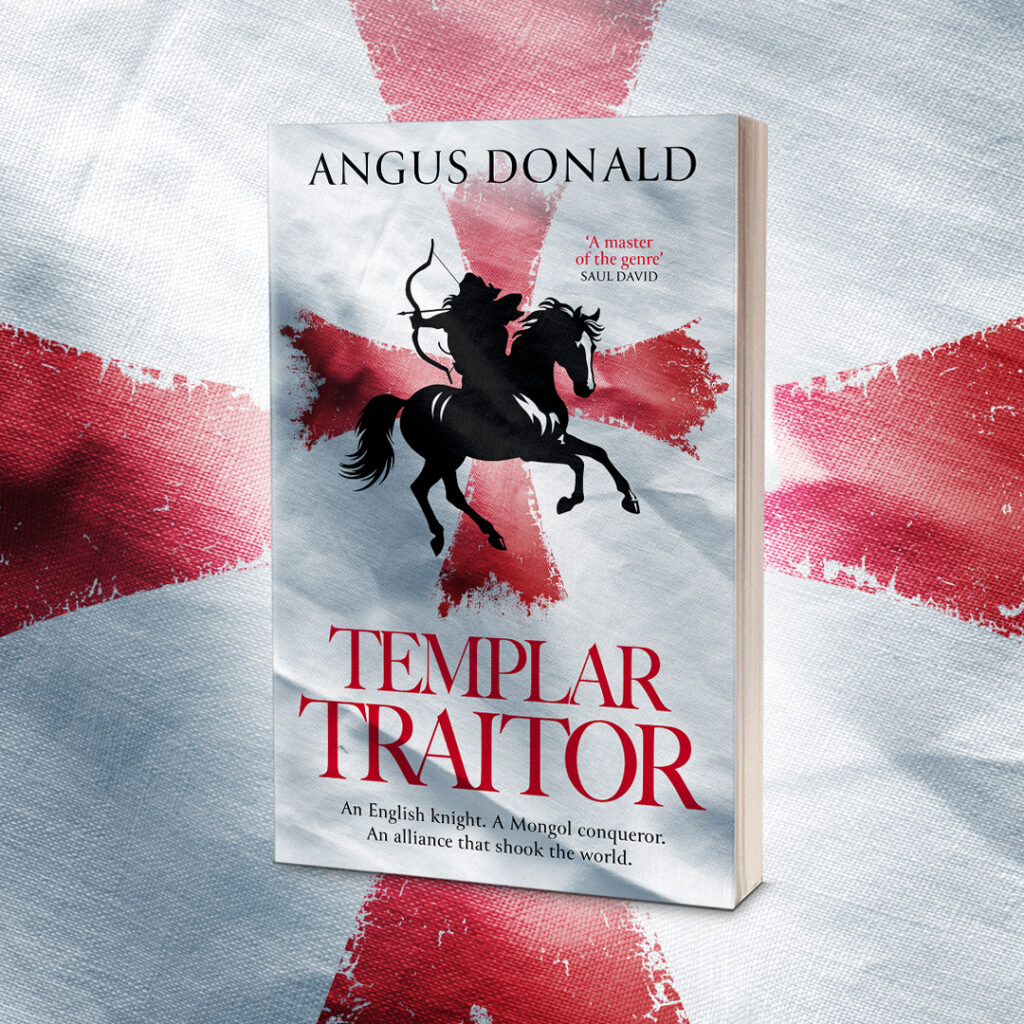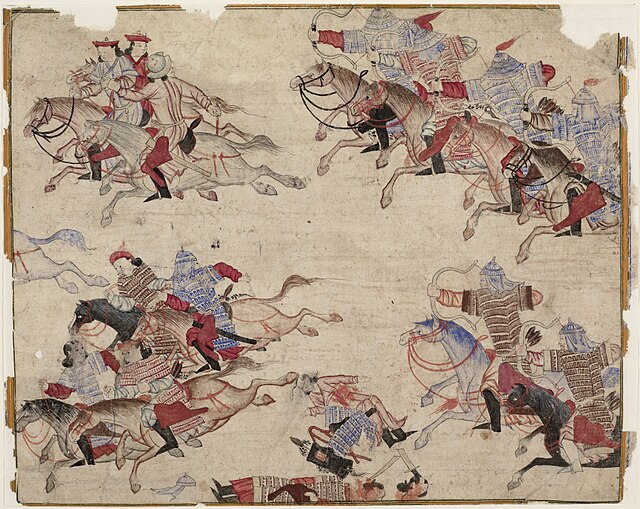Templar Traitor: the truth behind the fiction
Templar Traitor is based on the true story of an Englishman who fought for Genghis Khan. But how did I discover this extraordinary, almost unbelievable story and turn it into historical fiction? And on what research did I base my adventure novel? The following is an article that I wrote a while back for Historia magazine, which answers these questions and many more. (Warning: spoilers ahead!)

In the blazing summer of 1241, all Christendom quailed before the threat of the Mongol menace. These tough, nomadic horsemen had erupted into Europe from the Asian steppe a few years earlier, smashed the Russian dukedoms, destroyed the Hungarians and thrashed the knights of Poland in pitched battle that spring.
At a small skirmish in July outside the walls of Vienna, a group of German knights under the command of Frederick, Duke of Austria, captured a scouting party of Mongol cavalry, and were astonished to discover that one of their number was an Englishman, a former Templar, who had been riding with these fiends from Tartarus, as the Christians thought of the Mongols, for more than twenty years.
The Englishman’s name was Robert, and my new historical novel Templar Traitor, the first in a trilogy, is based on the true story of this extraordinary man.
There are few solid facts known about Robert, but most of what we know comes from the cleric who interrogated him in Vienna Castle, a middle-aged priest called Ivo of Narbonne*, who wrote letters to his boss, the Bishop of Bordeaux, reporting back what he had learnt of Robert’s life and adventures.
The bizarre story of the disgraced Englishman who fought for Genghis Khan later found its way into the chronicles of Mathew Paris, a 13th-century monk of St Albans, who recorded Robert’s capture in his writings. And I learnt about this unique Englishman by chance from the St Alban’s monk’s near-namesake, Matthew Parris of The Times newspaper, who briefly mentioned the legend in one of his columns about five years ago. When I read the column, I nearly spat out my cornflakes in astonishment. This, I thought to myself, would make an absolutely cracking historical novel.
So, I set about researching the Englishman, online and in the history books, anywhere I could find information, and discovered that Robert was an educated man, who spoke several languages, and probably came from southern England. I learnt that he was expelled in disgrace from the Order at Acre in 1218 for gambling (a grave sin in Templar eyes). After that, Robert disappears from the record for many years until he reappears in the spring of 1241 as a Mongol ambassador at the court of King Béla of Hungary in Pest (now Budapest).
Robert was part of the delegation that delivered the ultimatum to the King of Hungry, telling the Christian monarch, in the classic Mongol way, to surrender immediately or face catastrophic consequences. The Hungarians refused and were destroyed by Batu Khan at the Battle of Mohi in April 1241.

A few months later, the Englishman himself was captured, accused of being a traitor to Christendom, and brutally interrogated in the dungeons of Vienna Castle. He revealed little detail of his activities under questioning, and some of his answers seem designed to pander explicitly to the medieval prejudices of his captors – he says, for example, that the Mongols were dog-headed cannibals, who ate the severed breasts of virgins for “dainties” – ie, sweetmeats. This is obviously false and certainly Robert must have known it was untrue. In short, it seems that Robert lied consistently to Father Ivo.
However, the middle-aged priest from the Languedoc also seems to have been something of a shady, even criminal type. In his letters to his bishop, he reveals that he had been accused of being a Paterinian – a heretic sect with beliefs similar to the Cathars – as a young man and, furthermore, that he has been acting as an agent provocateur for the Catholic Church among various other secret groups of heretics in northern Italy before coming to Vienna.
So, we have a wretched prisoner who is lying to his captors, and a clever interrogator who is also not entirely what he seems, and this tension between the two men creates the underlying mystery in Templar Traitor – why did Robert do all the things he did? What was his motive? – that drives my plot.
The truth is that we simply do not know what Robert was doing for twenty years in Asia. This is where the fiction in historical fiction comes in. To research what Robert might have been doing, I made the assumption that he joined forces with the Mongols early on, a few months after his expulsion from the Order at Acre. I also assumed that he participated fully in the Mongol lifestyle and also, as a knight, in the battles of Genghis Khan and his generals.
We do, thankfully, know a great deal about Genghis Khan and his various bloody campaigns, and these form the historical bedrock of my trilogy. For example, in Templar Traitor, Robert helps the Mongols to capture the wealthy city of Otrar in what is now Kazakhstan, and aids them in bringing down the mighty Khawarazmian Empire, which then controlled a vast land area comprising all of Persia, parts of eastern Iraq, and much of Central Asia.
The Shah of Khwarazmia had allowed five hundred Mongol merchants to be robbed and murdered on his border town by the Governor of Otrar, and when Genghis Khan sent ambassadors to him, the Governor humiliated them.
In his vengeance, the Mongol warlord descended on the Khwarazmian Empire like a wolf on the fold, hounded the Shah to his death and conquered all his territories in two short years. I am sure that Robert, who seems to have been a brave, resourceful man, a deeply committed Christian, and a superbly trained warrior, would have played his part fully in this global psychodrama.
Templar Traitor ends with Robert and Subutai, Genghis Khan’s most talented general, four thousand miles west of the Mongol homeland, looking up at the high Caucasus Mountains in Georgia, the final barrier to Europe. And my tale of this most unusual Englishman continues in the summer of 2026 with the next novel in the trilogy, Templar Assassin.
* Ivo of Narbonne was a real man and I have him make a brief appliance in Robin Hood and the Heretic Prince, the latest novel in my Outlaw Chronicles.
Templar Traitor is available as an eBook, paperback and in audio version, too, from Amazon and all good book sellers.
Comments (0)